44th FEBS Congress in Krakow – Special Sessions on Education

On July 6–11, 2019, the 44th FEBS Congress took place in Krakow. It attracted over 1800 participants. As a representative of the local organizing committee of the FEBS Congress, as well as an academic teacher involved in educational activities, I summarize here the part of the congress regarding education. I also present my observations and some impressions from young academic teachers about the event.
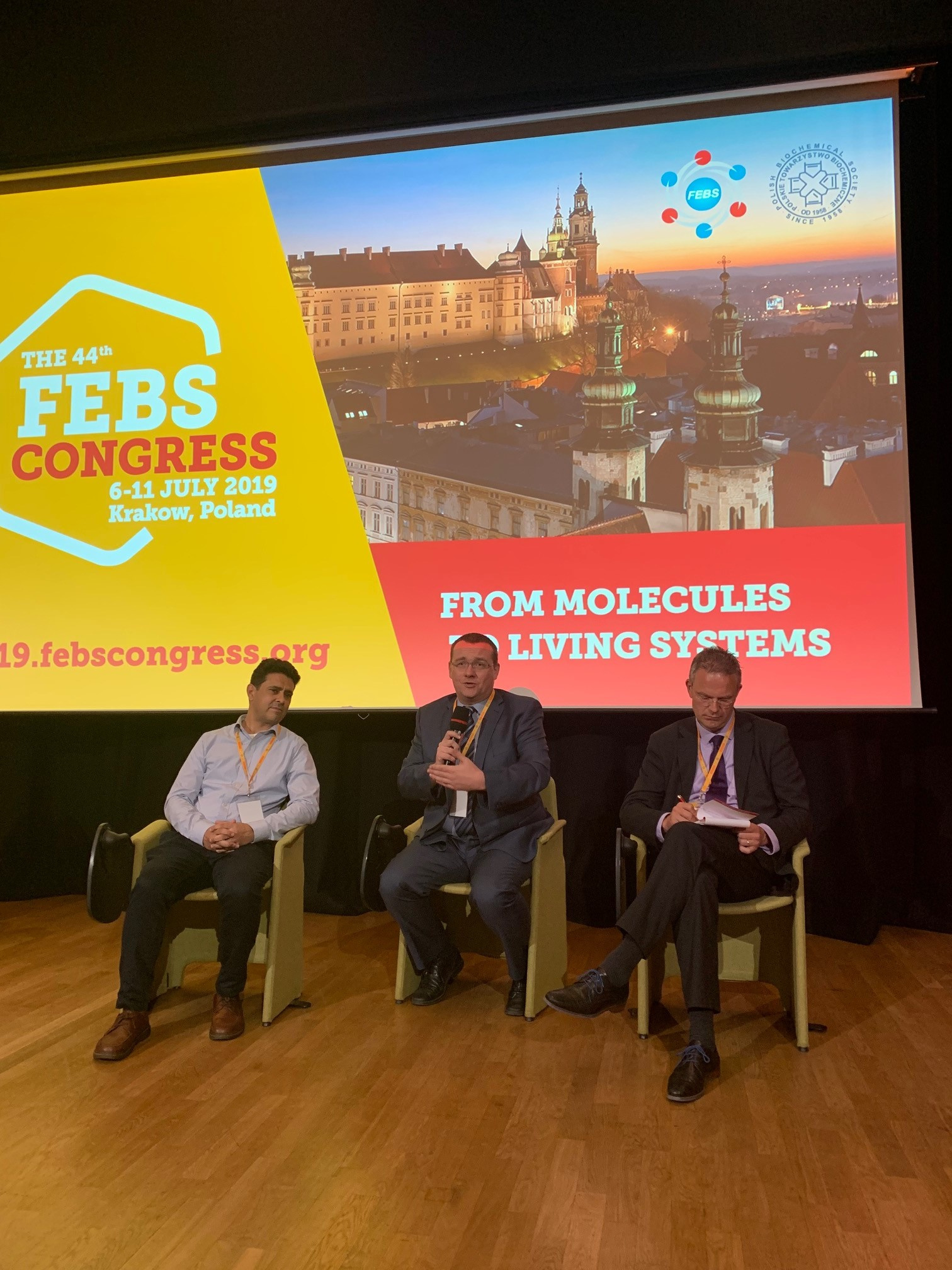
learning in life sciences education” (Photo: F. Sagin)
Two Special Sessions on Education were held as part of the FEBS Congress, co-organized by the FEBS and IUBMB Education Committees. The first of them: “Creative teaching: Effective learning in life sciences education” (Chairs: Luciane Vieira de Mello, UK; Laszlo Dux, HU) was held on Monday July 8th 2019. The main points of the session included questions such as: “How do we go about fostering effective learning in our students through the use of creative teaching methods? How do we bring together student-centred approach, active learning and ideal doses of creative activity?” This session explored the nature and value of creative teaching and proposed a number of strategies that life sciences educators should consider if they hope to shape the future scientists of 21st century society. Three interesting lectures in this session were: “Enhancing your classroom teaching by integration of open online courses“ (Peter de Jong, NL), “Student-activating methods of teaching in life sciences” (Michal Nowakowski, PL) and “Undergraduate teaching laboratories – the transformative impact of learning technologies” (Bill Heslop, UK).
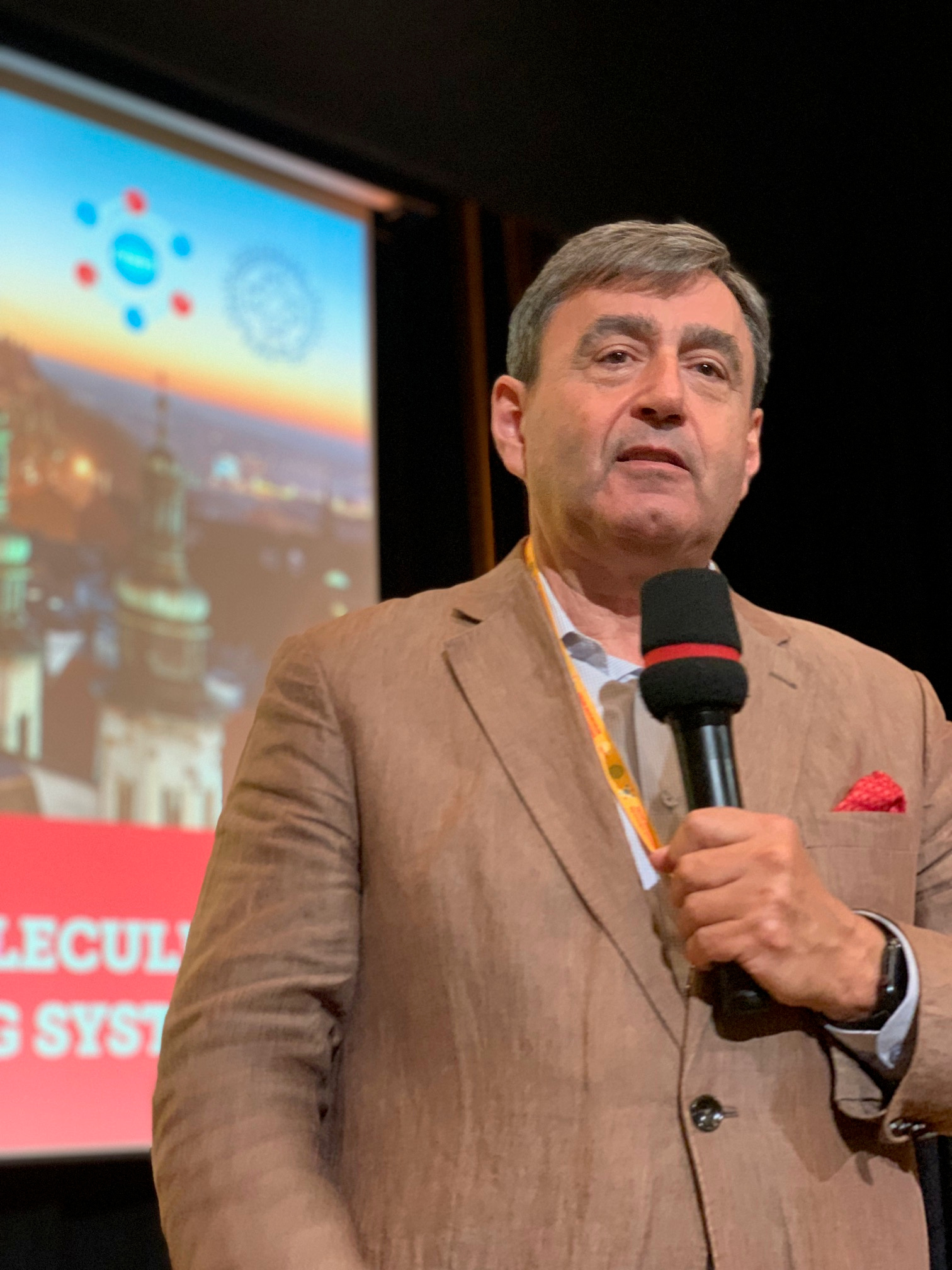
The second session: “Future education now!” (Chairs: Gul Guner Akdogan, TR; Jean-Luc Souciet, FR) took place on Tuesday July 9th. Internationally recognized educational innovators Eric Mazur, USA (who gave the inspiring talk “Innovating education to educate innovators”) and Joan J. Guinovart, ES (“Revamping postdoctoral training and education”) were the speakers of this session.
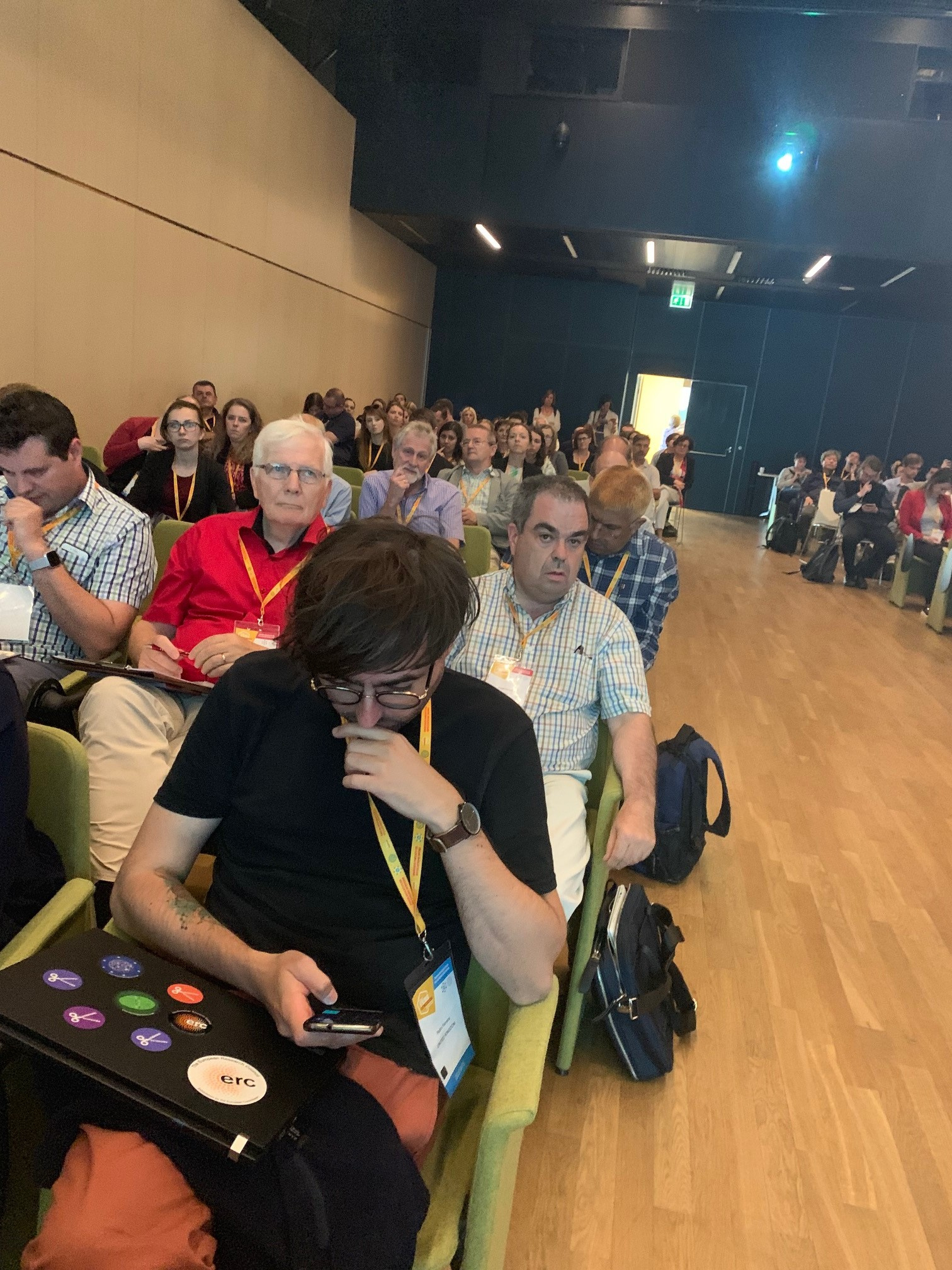
(Photo: F. Sagin)
What is especially pleasing is that all these events took place at a completely filled lecture hall. Additionally, the value of the lectures was demonstrated by the great number of questions asked after each speech. Often discussions continued in the corridor for a long time after the session.
An education poster session took place on Monday July 8th, with several posters presented by delegates from different countries (details in the previous post of Angel Herráez, ES “Education posters in the Krakow congress”). Two of these – Anna Bentke and Kinga Kaszuba – are involved in educational activities at my University, so I decided to ask them for a report to share their thoughts on the FEBS/IUBMB Education Committee Educational Sessions.
Anna Bentke (Poster: “The project of PBL workshop classes with Biochemical Oxford Debate as a method of active learning in Nutritional Biochemistry Course.”, A. Bentke, Jagiellonian University Medical College, Krakow, Poland):
“I work at the Jagiellonian University, Medical College, Chair of Medical Biochemistry. I had an opportunity to participate in many additional courses improving didactical skills and to go abroad to other University to learn from their teaching experience. I love teaching and I am inspired by my students every day to learn more about effective teaching. Being both a researcher and teacher brings a lot of challenges in my everyday work but there has been no real time for discussion and reflection from the beginning of my teaching career. Participation in FEBS congress in Krakow gave me the opportunity to take part in educational sessions for the first time in my academic life. The very introduction of this kind of session in such a prestigious conference was an important message for me that this part of my job is not only important for me but also for the whole biochemical society. I had a chance to present my ideas during the poster session and share them with the broad audience. There were various comments to my solutions for the course that gave me a different perspective and chance to improve the concepts. I heard a lot of advice from experienced educators and had a great deal of conversations explaining what my vision was. Most surprising for me was talking for many hours in front of my poster and that so many people were interested. FEBS was an opportunity to meet young teachers from all around the world. As they explained their experiences and talked about their work I could really relate to their situation. The similar problems and struggles among young professors were very reassuring. The similar goals and the same passion for teaching as well as the will to perfect the teaching process gave me a new perspective and a feeling of belonging. It is as hard in my work as in Hungarian teaching classes to deal with expectations of the students and work overload while teaching and conducting research. Students in Australia struggle in the same way with the simple calculations as my students at the beginning of their studies in Kraków etc. Last by not least I had a chance to participate in educational sessions with the most inspiring speakers as well as educational workshops with brilliant tutors. The main ideas that I gathered from the conference were:
· teaching is not only the transfer of knowledge,
· teaching is about introducing active methods, involving the students to participate in the process,
· there is a great need of researchers being involved in the process as they have the opportunity to present the real-life background of what the knowledge really is.
All these aspects will stay with me as the most valuable experience from the conference. Lectures, especially of “Future education now” session and Research and Career Skills session concluding professor Frank Michelangeli presentation were thought-provoking and gave me a lot of new concepts for my classes. Additionally I recall a most inspiring conversation with professor Mazur after his lecture when we gathered in a small group of young teachers and he took his time to talk about our struggles and hopes. Meeting all those great motivating educators and being a part of the community that understands the importance of teaching and sharing your research experience to future generations gives me strength for a new academic year. It will be a real booster for the starting point to try to convince the unconvinced to introduce changes at my University!”
Kinga Kaszuba (Poster: “Television game shows as an inspiration for educational games in teaching medical biochemistry.”, K. Kaszuba, Jagiellonian University Medical College Chair of Medical Biochemistry, Krakow, Poland)
“I am a young and inexperienced teacher; therefore for me FEBS special session on education was a wonderful opportunity to meet many academics of different backgrounds, nationalities and levels of expertise. All of the talks presented were incredibly inspiring and motivating and I was truly impressed that so many people have attended. Being a part of scientific community I usually hear that research is the absolute priority and teaching is unfortunately often treated as a waste of time. Therefore I was even more surprised that so many scientists were interested in talks and posters on education. During the last year I focused on gaining knowledge and developing skills involved in the didactic part of my academic work. I took part in courses that have broadened my knowledge on tutoring, active teaching methods, motivating students and many other important didactic skills. Therefore, for the first time in my career I had an opportunity to present a poster about didactics and not my scientific research. It was a great experience and I have never met with such attention from the viewers and I have never heard so many questions and comments about my poster.
People often think that the struggles they have and the difficulties they face in their work are exclusive to their institution or at least to their educational system or a country. Meanwhile, during the conference we quickly found out that students all over the world are really not that different from each other and as academic teachers we often deal with very similar obstacles. This realization gave us an opportunity to exchange experiences and share ideas and some possible solutions to each other’s problems. We even had the opportunity to describe our concerns to some of the speakers one of which was professor Eric Mazur, who listened to us patiently, was truly interested in what we had to say and provided us with very valuable comments.
FEBS special sessions on education allowed me to feel as a part of the community of academic teachers, gave me the opportunities for networking and future cooperation, inspired me to progress and encouraged to improve my skills, introduce new techniques and ask for help and advice from my colleagues.”
Comments from young researchers and teachers that took part in workshops and educational sessions:
Julian Pakay (Poster: “Improving quantitative literacy in incoming biomedical science students.”, J. Pakay, J. Young, F. Carroll, La Trobe Institute for Molecular Science, Melbourne, Australia) – recognized with an Education poster prize:
“Being from Australia it can sometimes feel we are isolated from the international community of biochemistry education. So for me one of the best aspects of the education sessions at the recent FEBS congress was the opportunity to network and discuss our common challenges.
All of the seminars were inspiring and thought-provoking, particularly Eric Mazur’s. Meeting him at the congress provided an opportunity for me to invite him to La Trobe University, in Melbourne where he gave another inspiring seminar in August.”
Rini Arianti (University of Debrecen, Medical School, Hungary):
“FEBS session on education was excellent. I got a lot of useful information and knowledge from amazing speakers. I can't wait to implement all the suggestions and advice from the speakers. I hope FEBS will keep this education session on future congress.”
After such a successful session dedicated to education, organized by the FEBS and IUBMB Education Committees, we are waiting impatiently for the next 45th FEBS Congress in Ljubljana (Slovenia), and especially for the education sessions – and hoping to meet in an even larger group of educators and people positively crazy about teaching.
Report prepared by:
Jagusiak Anna ([email protected])
Bentke Anna ([email protected])
Kaszuba Kinga ([email protected])
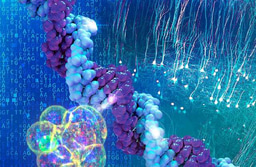
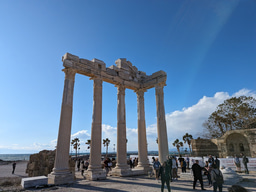

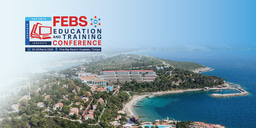
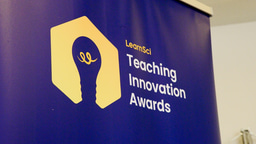
Join the FEBS Network today
Joining the FEBS Network’s molecular life sciences community enables you to access special content on the site, present your profile, 'follow' contributors, 'comment' on and 'like' content, post your own content, and set up a tailored email digest for updates.
Anna, thanks for sharing this enthusiastic and thorough report that will help others appreciate what the sessions within FEBS congresses mean to young scientists. I am confident that it will be helpful and inspiring for all readers.
Having the feedback from attendees, and particularly the younger ones, is very important for theEBS Education Committee and other organisers of these sessions within our congresses.
Thanks Anna. Great to see a positive and enthusiastic report.
Anna, thanks a million for putting together such a valuable feedback! It is such a great reflective writing!
As the FEBS Education Committee, we were very lucky to host very distinguished speakers and such an enthusiastic group of educators who attended the education sessions at the FEBS Congress.
You, Anna and Kinga all have very strongly and convincingly addressed the importance of these sessions in addition to the scientific talks.
This gives us a great motivation and reason to continue for better and better!
Thanks!